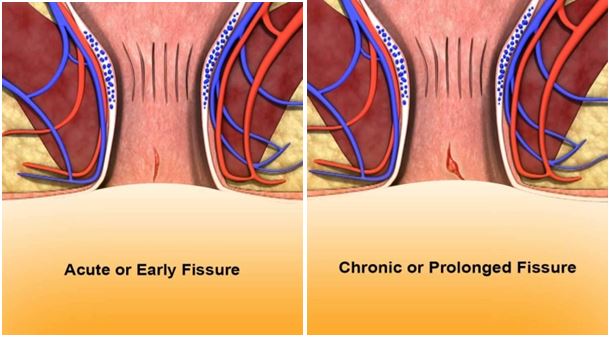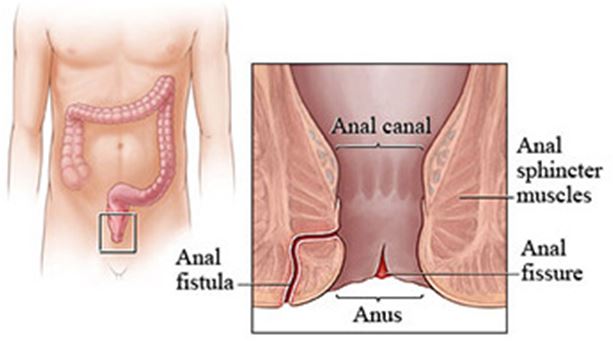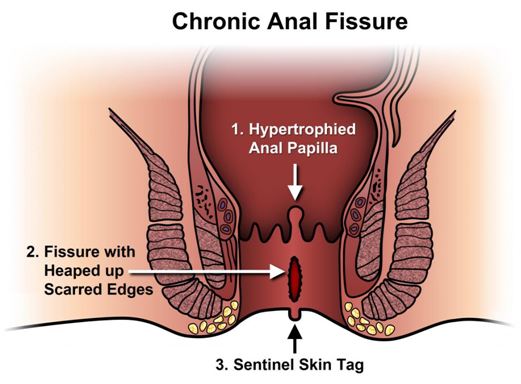FISSURECTOMY
ANAL FISSURE
Anal fissure is a common disease that affects people of all ages and both men and women. It is a small tear in the lining of the anal canal. These crack in the skin gives sharp pain, discomfort, bleeding and strain during stool release.
Types of fissures: - They are two types as follows:
- Acute fissure: An acute anal fissure looks like a fresh tear, somewhat like a paper cut.
- Chronic fissure: A chronic anal fissure likely has a deeper tear, and may have internal or external fleshy growths. This fissure is considered chronic if it lasts more than eight weeks.
 Cross section
Cross section Cross section
Cross section Cross section
Cross section